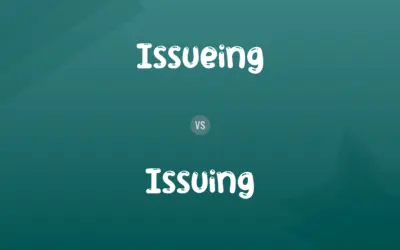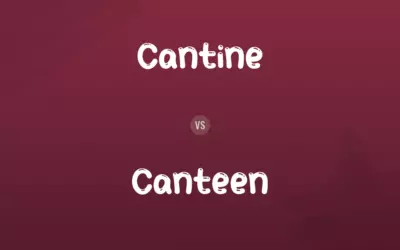Annoint vs. Anoint: The Correct Spellings
Edited by Muazma Batool — By Muneeza Rehman — Updated on February 29, 2024
Annoint is an incorrect spelling . The correct spelling is "anoint," meaning to smear or rub with oil, typically as part of a religious ceremony.

Which is correct: Annoint or Anoint
How to spell Anoint?
Incorrect Spelling
Annoint

Correct Spelling
Anoint

Is it Annoint or Anoint
The incorrect spelling, annoint, includes an unnecessary additional ‘n’. The correct spelling is anoint. The error is solely in the spelling; "annoint" is incorrect, and "anoint" is correct.
Muazma Batool
Nov 17, 2023
The term anoint has its origins in Middle English, derived from Old French enoint ‘anointed,’ past participle of enoindre, from Latin inungere, from in- ‘on’ + ungere ‘to anoint.’ The word is often associated with religious ceremonies, referring to the act of applying oil or ointment.
Muneeza Rehman
Nov 17, 2023
To remember the correct spelling of “anoint,” think of the word “appoint,” which is similar in pronunciation and also has a single ‘n’. Recognizing this parallel can help maintain the correct spelling, differentiating it from the incorrect "annoint."
Jonathan
Nov 17, 2023
Anoint mainly exists in its verb form, but derivatives include anointed and anointing.
Muazma Batool
Nov 17, 2023
How Do You Spell Anoint Correctly?
Incorrect: The oil used to annoint the sick is blessed.
Correct: The oil used to anoint the sick is blessed.
Muneeza Rehman
Feb 29, 2024
Anoint Definitions
Anoint may also refer to applying oil or lotion to one’s body.
After her bath, she would anoint her skin with fragrant lotion.
Nolan
Sep 21, 2023
Anoint can signify to nominate or choose someone for a particular role, especially with the implication that they are being endowed with divine favor.
The young leader was anointed as the successor by the outgoing president.
Olivia
Sep 21, 2023
Anoint also implies the action of dedicating to the service of God.
The new chapel was anointed and blessed in a heartfelt ceremony.
Leo
Sep 21, 2023
To anoint can mean to treat or sprinkle with some healing substance.
He had to anoint the wound with antiseptic to prevent infection.
Levi
Sep 21, 2023
Anoint means to smear or rub with oil or an ointment, often as part of a religious ceremony.
The priest would anoint the baby with oil during the christening.
Muazma Batool
Sep 21, 2023
To apply oil, ointment, or a similar substance to.
Muneeza Rehman
Sep 20, 2023
To put oil on during a religious ceremony as a sign of sanctification or consecration.
Muneeza Rehman
Sep 20, 2023
To choose by or as if by divine intervention.
Muneeza Rehman
Sep 20, 2023
(transitive) To smear or rub over with oil or an unctuous substance; also, to spread over, as oil.
Muneeza Rehman
Sep 20, 2023
(transitive) To apply oil to or to pour oil upon, etc., as a sacred rite, especially for consecration.
Muneeza Rehman
Sep 20, 2023
To choose or nominate somebody for a leading or otherwise important position, especially formally or officially, or as an intended successor.
Muneeza Rehman
Sep 20, 2023
To mark somebody as an official ruler, especially a king or queen, as a part of a religious ceremony.
Muneeza Rehman
Sep 20, 2023
To smear or rub over with oil or an unctuous substance; also, to spread over, as oil.
And fragrant oils the stiffened limbs anoint.
He anointed the eyes of the blind man with the clay.
Muneeza Rehman
Sep 20, 2023
To apply oil to or to pour oil upon, etc., as a sacred rite, especially for consecration.
Then shalt thou take the anointing oil, and pour it upon his [Aaron's] head and anoint him.
Anoint Hazael to be king over Syria.
Muneeza Rehman
Sep 20, 2023
Anointed.
Muneeza Rehman
Sep 20, 2023
administer an oil or ointment to ; often in a religious ceremony of blessing
Muneeza Rehman
Sep 20, 2023
Anoint Meaning in a Sentence
To anoint someone can symbolize a special blessing or calling.
Kaitlyn
Feb 29, 2024
Priests anoint the sick to offer comfort and healing.
Muneeza Rehman
Feb 29, 2024
Anoint Idioms
To anoint oneself
The act of applying oil or perfume to one's body, often for ceremonial or religious reasons.
Before the ritual, she anointed herself with fragrant oils.
Muneeza Rehman
Feb 29, 2024
Frequently Asked Questions
Is it anoint or annoint?
The correct spelling is "anoint," with "annoint" being incorrect due to the unnecessary addition of an ‘n’.
Muazma Batool
Nov 17, 2023
Can anoint be synonymous with appoint in some contexts?
Yes, in some contexts, "anoint" can be synonymous with "appoint" when it refers to nominating or choosing someone for a particular role, especially with divine implication.
Nolan
Nov 17, 2023
Why is annoint incorrect?
"Annoint" is incorrect because it includes an extra ‘n’ that does not belong in the standardized spelling of "anoint" in English dictionaries.
Muneeza Rehman
Nov 17, 2023
What is the origin of the word anoint?
The word "anoint" originates from Middle English, influenced by Old French and Latin, from the term inungere, consisting of in- ‘on’ + ungere ‘to anoint.’
Muazma Batool
Nov 17, 2023
Can anoint have a religious implication?
Yes, "anoint" often has religious implications, referring to the ceremonial application of oil or the symbolic choosing or dedicating with divine favor.
Olivia
Nov 17, 2023
Does anoint have different forms?
"Anoint" primarily exists in its verb form, with derivatives like "anointed" (adjective) and "anointing" (noun).
Muneeza Rehman
Nov 17, 2023
Is there any significance to being anointed in religious texts?
Yes, being anointed often holds significant meaning in religious texts, symbolizing divine favor, blessing, or consecration.
Henry
Nov 17, 2023
How can one ensure correct usage of the word "anoint"?
Ensuring correct usage of "anoint" involves remembering its meaning related to applying, smearing, or choosing and considering its contextual appropriateness, especially in religious or symbolic contexts.
Leo
Nov 17, 2023
How can the word anoint be utilized in sentences?
"Anoint" can refer to the physical application of oil or to symbolically choosing or nominating someone, as in "She was anointed as the representative of the group."
William
Nov 17, 2023
Does anoint also imply treatment with a substance for healing?
Yes, "anoint" can also imply treating or sprinkling with some healing substance, referring to the application of substances for medicinal purposes.
Leo
Nov 17, 2023
Content Creators
Written by
Muneeza RehmanAt Comparisons.wiki, Muneeza skillfully navigates the vast sea of information, ensuring clarity and accuracy as the lead content editor. With a keen eye for detail, she curates every comparison to enlighten and engage readers.
Edited by
Muazma BatoolAs a content editor, Muazma Batool is not just a grammar guru but a creative mastermind who breathes life into every word. With an eagle eye for detail and a passion for storytelling, she transforms bland text into engaging content that captivates audiences and drives results.





























